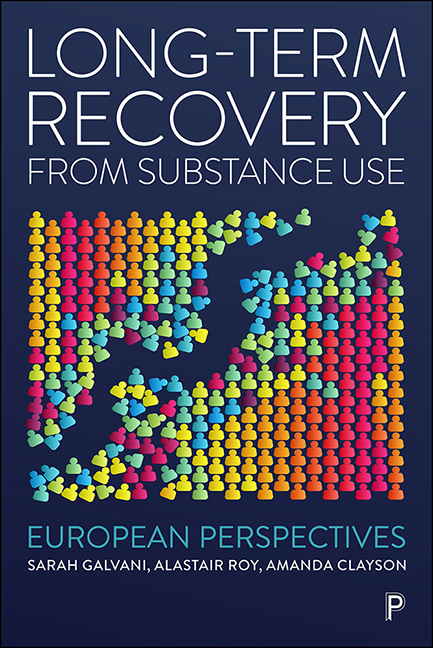12 - Care, continuity and change in long-term recovery: the experiences of older opioid users in long-term recovery in three German regions
Published online by Cambridge University Press: 15 September 2022
Summary
Introduction
The fact that opioid users now have longer life expectancy is largely due to the availability of well-developed medical and psychosocial care for substance users. In Germany, all citizens have access to extensive social welfare provision and a highly developed healthcare system. Opioid substitution treatment (OST) using methadone or other medication is the standard treatment for opioid users. According to the Substitution Register report, which is published by the German Federal Institute for Drugs and Medical Devices (FIDMD), the number of patients receiving OST rose from 46,000 in 2002 to 79,700 in 2019 (FIDMD, 2020).
However, whilst OST helps substance users to stay off heroin, it often remains a part of their lives for many years or even decades. Although studies have shown that the social situations of older opioid users (OOUs) improve when they are receiving OST (EMCDDA, 2010; Wittchen et al, 2011a), there are often wider institutional factors that can have negative impacts for both service users and professionals. For example, finding employment or rewarding activity can be particularly difficult for people associated with long-term opioid use due to previous life circumstances. This can result in limited options and frustration for everyone involved. Many studies indicate that older substance users are not only affected by psychosocial impairments but also by multiple health conditions that may lead to a loss of mobility and a need for care at an earlier age than in the general population (Reece, 2007; Vogt, 2011).
This chapter describes the situation of opioid users aged 45 and over in Germany, and considers aspects such as the health-related and social characteristics of this group, as well as indicators for the provision of professional support regarding treatment and recovery. The chapter presents findings from the Alters-CM3 research project, which was conducted in Germany between 2014 and 2017. (Alters-CM3 is a German abbreviation for ‘Case management for older opioid users in three German regions’). Funded by the Federal Ministry of Research and Education (FMRE), the research focussed on practitioners’ experiences of implementing a psychosocial intervention specifically adapted for OOUs; the intervention applied a person-centred case-management approach. In addition, the research considered the implications of the findings for OOUs’ long-term recovery in relation to their life satisfaction and the improvement of psychosocial support.
- Type
- Chapter
- Information
- Long-Term Recovery from Substance UseEuropean Perspectives, pp. 157 - 169Publisher: Bristol University PressPrint publication year: 2022



